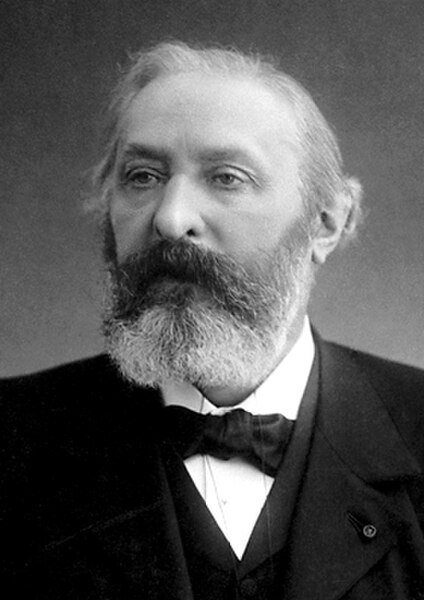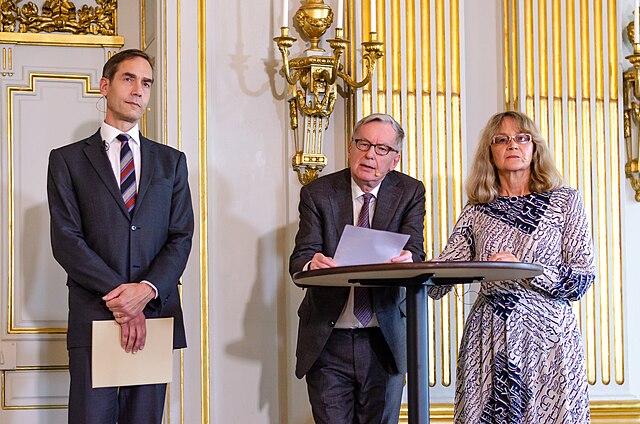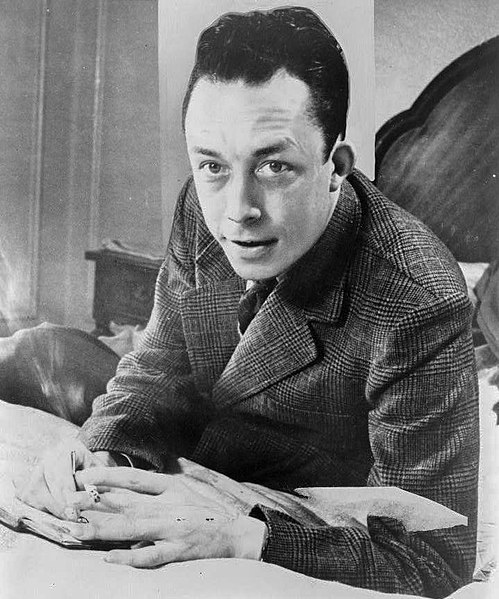Nobel Committee for Literature
The Nobel Committee for Literature is the Nobel Committee responsible for evaluating the nominations and presents its recommendations to the Swedish Academy, which then selects, through votation, the Nobel Prize in Literature.
The meeting room for Swedish Academy members.
Committee chair Anders Olsson explaining Annie Ernaux's qualities of being the 2022 Nobel laureate with Committee member Ellen Mattson and Permanent Secretary Mats Malm.
Image: Anders Olsson at Göteborg Book Fair 2018 (cropped 2)
Image: Mats Malm on the Nobel Prize in Literature 2022 (cropped)
Nobel Prize in Literature
The Nobel Prize in Literature is a Swedish literature prize that is awarded annually, since 1901, to an author from any country who has, in the words of the will of Swedish industrialist Alfred Nobel, "in the field of literature, produced the most outstanding work in an idealistic direction". Though individual works are sometimes cited as being particularly noteworthy, the award is based on an author's body of work as a whole. The Swedish Academy decides who, if anyone, will receive the prize. The academy announces the name of the laureate in early October. It is one of the five Nobel Prizes established by the will of Alfred Nobel in 1895. Literature is traditionally the final award presented at the Nobel Prize ceremony. On some occasions, the award has been postponed to the following year, most recently in 2018.

In 1901, French poet and essayist Sully Prudhomme (1839–1907) was the first person to be awarded the Nobel Prize in Literature, "in special recognition of his poetic composition, which gives evidence of lofty idealism, artistic perfection, and a rare combination of the qualities of both heart and intellect."
Hemingway's telegram in 1954 (the academy has alternately used for Literature and in Literature over the years, the latter becoming the norm today)
French author Albert Camus was the first African-born writer to receive the award.







